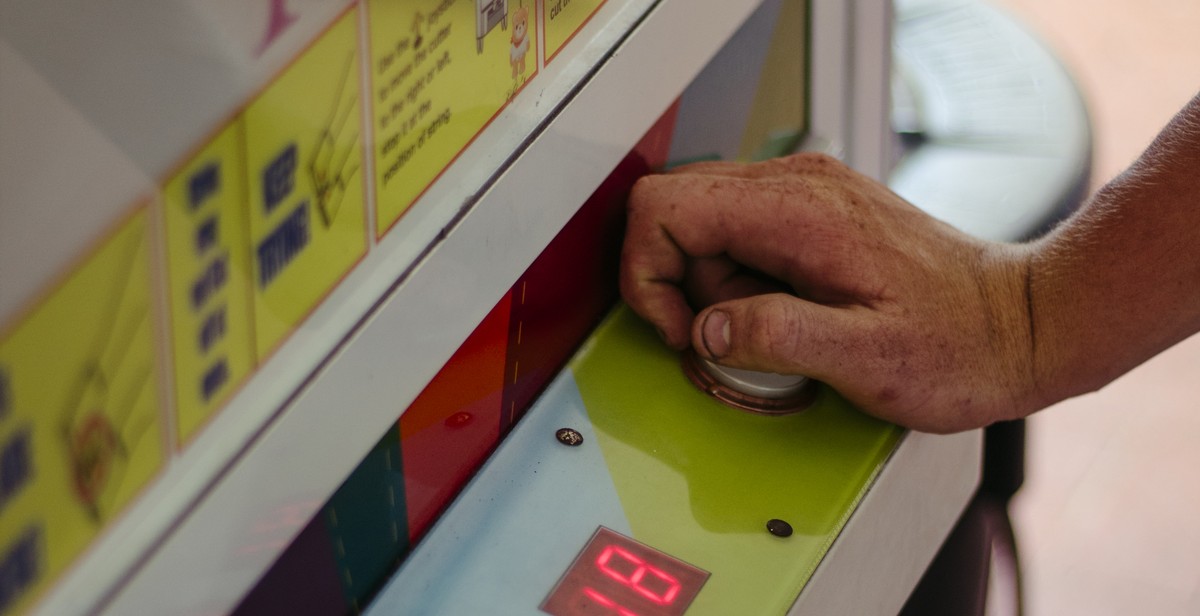The Evolution of Slot Machines: From Mechanical to Digital
Slot machines are a popular form of gambling entertainment that can be found in casinos, bars, and even online. They are also known as one-armed bandits or fruit machines, and work by allowing players to place bets on the outcome of a spin. If the symbols on the reels match up in a winning combination, the player receives a payout.
Brief history of slot machines
Slot machines have come a long way since their invention in the late 19th century. The first slot machine, created by Charles Fey in 1895, was a mechanical device with three spinning reels and five symbols: horseshoes, diamonds, spades, hearts, and a Liberty Bell. The Liberty Bell symbol was the highest paying, and three of them in a row would win the player the jackpot of 50 cents.
Over the years, slot machines became more popular and more complex. In the 1960s, the first electromechanical slot machines were introduced, which used electrical components to control the spinning of the reels. In the 1970s, video slot machines were introduced, which used a video screen instead of physical reels to display the results of each spin. And in the 1990s, the first digital slot machines were introduced, which used computer software to control the spinning of the reels and the payout of winnings.
Today, slot machines continue to evolve and adapt to the changing needs and preferences of players. From mechanical to digital, the evolution of slot machines has been a fascinating journey that has transformed the way we gamble and enjoy casino games.

Mechanical Slot Machines
Mechanical slot machines were the first type of slot machines that were introduced in the gambling industry. These machines were purely mechanical and did not have any electronic or digital components. They were operated by pulling a lever that was connected to a set of mechanical reels.
How did mechanical slot machines work?
Mechanical slot machines had a series of gears, levers, and springs that would spin the reels when the lever was pulled. The reels had symbols on them, and when they stopped spinning, the symbols would line up to determine if the player had won or not. The symbols on the reels varied depending on the machine and the theme of the game.
Popular mechanical slot machines
One of the most popular mechanical slot machines was the Liberty Bell, which was invented by Charles Fey in 1895. The Liberty Bell had three reels and five symbols, including horseshoes, spades, diamonds, hearts, and a Liberty Bell. If a player got three Liberty Bells in a row, they would win the jackpot of 50 cents.
Another popular mechanical slot machine was the Operator Bell, which was also invented by Charles Fey. The Operator Bell had a more complex design than the Liberty Bell and included ten symbols on each reel, including a star, a horseshoe, a bell, and a heart. The Operator Bell also introduced the fruit symbols that are commonly used in slot machines today.
Advantages and disadvantages of mechanical slot machines
One advantage of mechanical slot machines was their simplicity. Since they did not have any electronic or digital components, they were easy to operate and maintain. They also had a nostalgic appeal, and many players preferred the classic look and feel of these machines.
However, mechanical slot machines also had some disadvantages. They were more prone to mechanical failures and were not as reliable as electronic or digital slot machines. They also had limited features and could not offer the same level of excitement and variety that modern slot machines provide.
- Advantages:
- Simple to operate and maintain
- Nostalgic appeal
- Disadvantages:
- Prone to mechanical failures
- Not as reliable as electronic or digital machines
- Limited features and variety

Electromechanical Slot Machines
Electromechanical slot machines were introduced in the late 1960s and early 1970s. These machines represented a significant advancement over the earlier mechanical slot machines, as they were able to incorporate electronic features into the gameplay. This allowed for more complex and varied game mechanics, as well as the possibility of larger payouts.
How did electromechanical slot machines work?
Electromechanical slot machines used a combination of mechanical and electronic components to operate. The spinning reels were still controlled by a mechanical system, but the payout system was electronic. This allowed for more precise control over the payouts, as well as the ability to incorporate more complex game mechanics.
The electromechanical system also allowed for the introduction of new features, such as multiple paylines and bonus rounds. These features were not possible with the earlier mechanical machines, which had a much simpler design.
Popular electromechanical slot machines
One of the most popular electromechanical slot machines was the Bally Money Honey, which was introduced in 1963. This machine was the first to use electronic components in its payout system, and it quickly became a hit with players. Other popular machines from this era included the IGT Fortune Coin and the Aristocrat Clubmaster.
Advantages and disadvantages of electromechanical slot machines
One of the main advantages of electromechanical slot machines was their ability to incorporate more complex game mechanics. This allowed for more varied and exciting gameplay, as well as the possibility of larger payouts. The electronic payout system also allowed for more precise control over the payouts, which helped to reduce the likelihood of cheating.
However, there were also some disadvantages to electromechanical machines. They were more complex and expensive to manufacture than their mechanical counterparts, which made them less accessible to smaller casinos. They also required more maintenance and were more prone to breakdowns.
- Advantages:
- More complex game mechanics
- Possibility of larger payouts
- Precise control over payouts
- Disadvantages:
- More expensive to manufacture
- Less accessible to smaller casinos
- More maintenance required
- More prone to breakdowns

Digital Slot Machines
Digital slot machines are electronic versions of the traditional mechanical slot machines found in land-based casinos. They operate using a computer program, which generates random outcomes for each spin of the reels.
How do digital slot machines work?
When a player spins the reels on a digital slot machine, the computer program uses a random number generator (RNG) to determine the outcome of the spin. The RNG ensures that each spin is completely random and independent of any previous or future spins.
The symbols on the reels are just for show and have no effect on the outcome of the spin. The computer program uses a set of algorithms to determine which symbols will appear on the reels, and whether or not the player has won a prize.
Popular digital slot machines
- Starburst: A popular slot game from NetEnt that features a space-themed design and a high RTP (Return to Player) of 96.1%.
- Mega Moolah: A progressive jackpot slot game from Microgaming that has made many players millionaires over the years.
- Gonzo’s Quest: Another popular slot game from NetEnt that features an exciting adventure theme and innovative gameplay mechanics.
Advantages and disadvantages of digital slot machines
Advantages:
- Convenience: Digital slot machines can be accessed from anywhere with an internet connection, making them much more convenient than traditional slot machines.
- Better graphics and animations: Digital slot machines often feature better graphics and animations than their mechanical counterparts, making them more visually appealing to players.
- More variety: With thousands of different digital slot machines available online, players have access to a much wider variety of games than they would in a land-based casino.
Disadvantages:
- Potential for addiction: Digital slot machines can be addictive, and some players may find it difficult to stop playing once they start.
- Risk of fraud: Because digital slot machines are operated using computer programs, there is a risk of fraud or hacking.
- Less social interaction: Playing digital slot machines online can be a solitary experience, with less opportunity for social interaction than in a land-based casino.

The Future of Slot Machines
The evolution of slot machines has been remarkable, and we have come a long way from the first mechanical slot machines to the latest digital ones. The future of slot machines is exciting and promises to bring even more innovation and advancements. Here are some of the trends we can expect to see in the coming years:
Virtual Reality
Virtual reality technology is becoming more accessible and popular, and it’s only a matter of time before it makes its way into the world of slot machines. Imagine being able to step into a virtual casino and play your favorite slots from the comfort of your own home.
Mobile Gaming
Mobile gaming is already a huge part of the online casino industry, and it will continue to grow in popularity. Slot machine developers are creating games specifically for mobile devices, with more interactive features and better graphics.
Social Gaming
Slot machines are no longer just a solitary activity. Social gaming allows players to interact with each other and compete for prizes. This trend is expected to continue, with more social features being added to slot machines.
Artificial Intelligence
Artificial intelligence is already being used in the online casino industry to personalize the gaming experience for each player. In the future, we can expect to see AI being used in slot machines to create more personalized and engaging games.
Conclusion
Overall, the future of slot machines is bright and full of possibilities. With advancements in technology and new trends emerging, we can expect to see even more exciting and innovative slot machines in the years to come. Whether you prefer the classic mechanical slots or the latest digital ones, there is no denying that slot machines will continue to be a popular form of entertainment for years to come.



